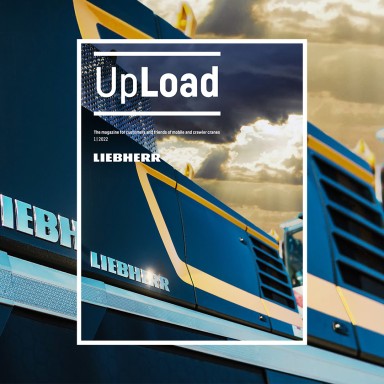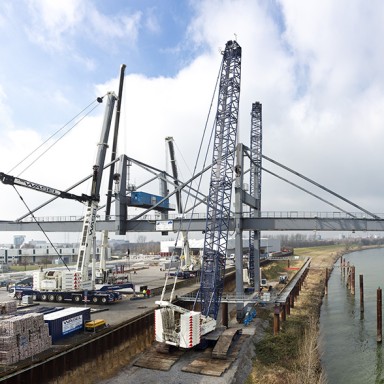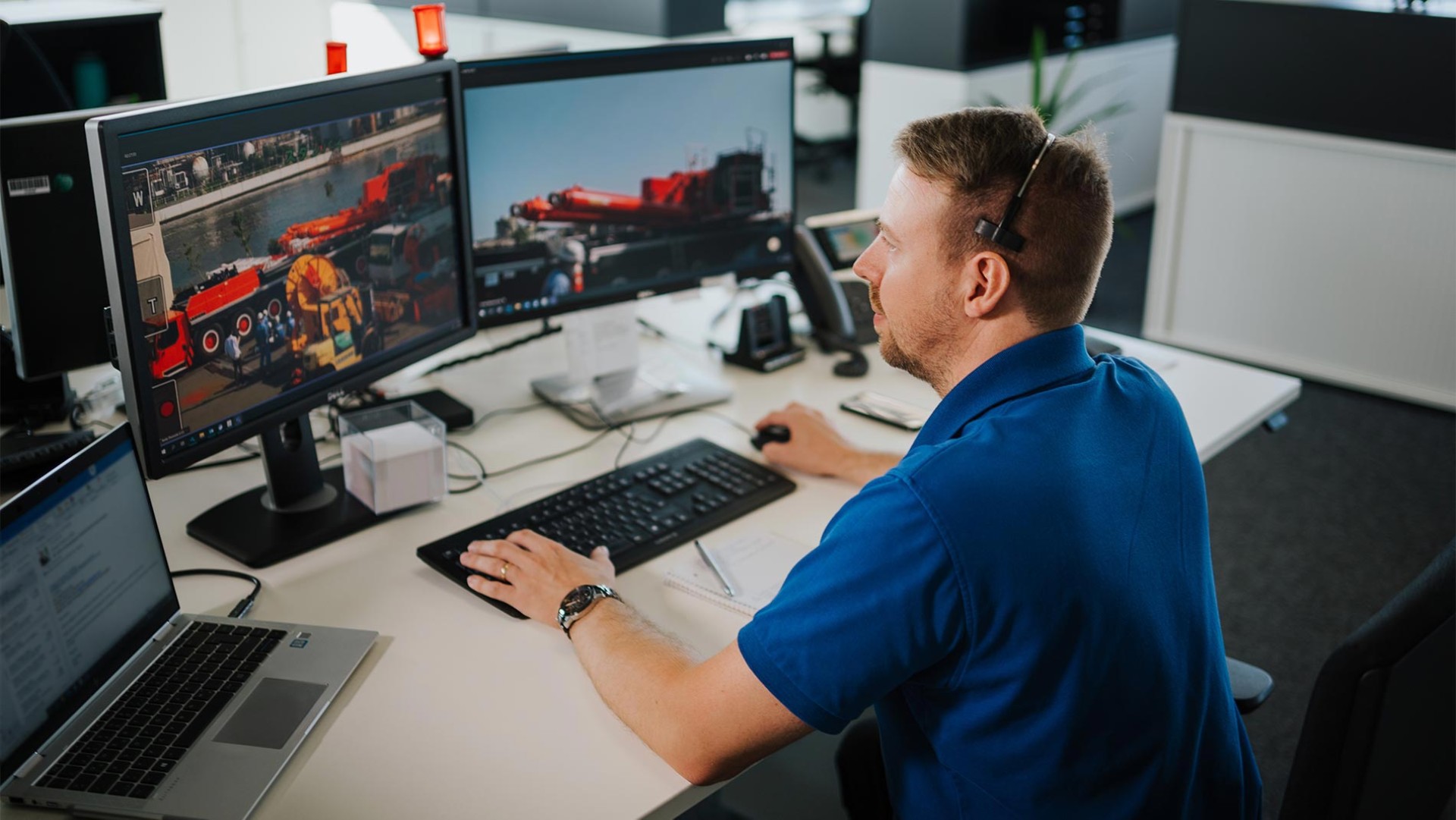
6 minutes | magazine 01/2022
Problem solver digitalisation
Virtual reality. Digitalisation. Remote. Words which are more and more common in our daily lives. Digitalisation is also becoming increasingly important for crane manufacturers.
... a virtual trip around the world
But the main question remains – what do our customers gain from it? This is our focus for digital products and developments. Digitalisation should make life easier and make the impossible possible. The coronavirus has also had a part to play in this respect. A few months ago, for example, nobody would have thought that crane induction training could have been carried out in full digitally. In fact, there was no demand or even requests to do so. But then ...
In the past, it was a matter of course that when a new machine model was launched, the service fitters from our global branch outlets around the world would come to us in Ehingen. They received training here and were given the knowledge they required, not only to maintain the cranes in their markets, but also to train customers locally and show them how to use the new machines. This often included active support from our service technicians in Ehingen. For large, complex cranes, customers from all over the world also came to us at the manufacturing plant for intensive training because we have perfect training conditions here.
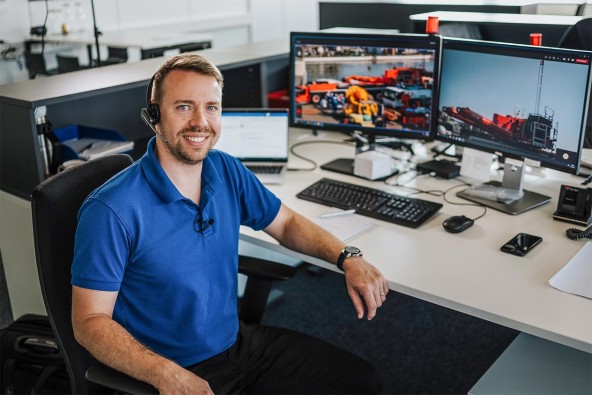
Robert Hampusch - Service Manager
This process had been established, tested and successful over many years. But then, along came the coronavirus. A time of restrictions. It was no longer possible to travel across borders and back freely as we had been able to do in the past. In some cases, it was only possible to do so by complying with significantly harsher regulations, sometimes involving up to 20 days of quarantine. However, our customers still had to be shown how to use new cranes by trained personnel.
We had to act – and quickly! It was clear what we had to do. Therefore, right at the beginning of the pandemic, our Training Department switched to online training courses. This meant that the transfer of theoretical knowledge could continue thanks to digitalisation. Check, move on!
The first digital crane induction training saw us take new routes, but nevertheless personal face-to-face induction is priceless for everybody.
Nevertheless, we still had a question – how could we continue to provide local support for our customers? The solution was simple – put crane induction training online as well! It sounds like a challenge, but it worked. Naturally, after we had had the idea we had to face a series of additional questions: How do we want it to work? What technical equipment is required? How can we ensure a fast, stable internet connection all over the world? How can we handle the time differences?
Teamwork leads to success
However, we had no time for lengthy reviews, preparations and tests as the cranes had to be delivered to the customers. So we used what we already had – the technical expertise and equipment that was already available to us. It all started with induction training for an LTM 1650-8.1 – in Japan. To enable us to be there live and maintain a good overview of the whole area, we set up several cameras on the surrounding buildings. They enabled us to visualise the conditions at the site. This, in turn, enabled us to deal with the questions and requests from the customer and react accordingly, while still being live at the site.
Our Japanese colleagues at the site were equipped with video goggles which were able to send both pictures and sounds to Ehingen. That meant that we could see exactly what the people on site could see. And hear what they could hear. The foundation for a live transmission between our fitter on site in Japan and us here in Ehingen was in place. The digital crane induction training could now take place live despite us being more than 10,000 kilometers away and the time difference of eight hours along with some rather unfamiliar equipment. And induction training for an LTM 1650-8.1 is definitely not child’s play. So yes – check!
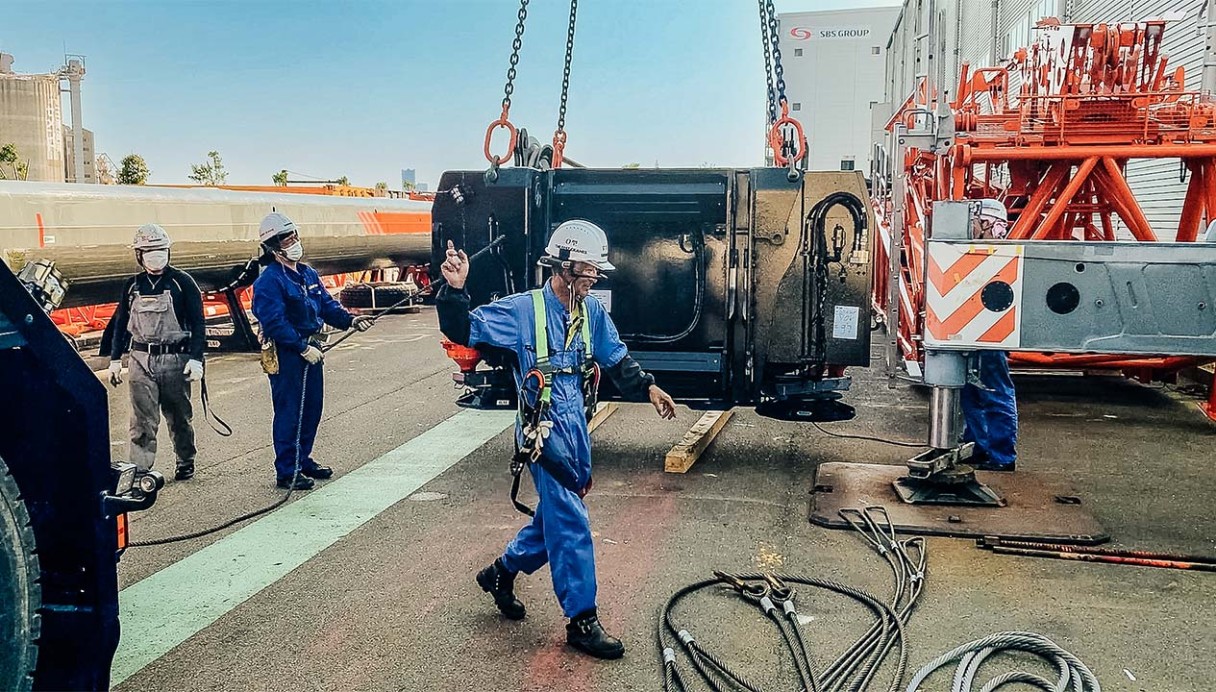
Live and kicking: Video goggles and microphones transmit sound and pictures to Ehingen from Japan 10,000 kilometers away
Thanks to the fantastic expertise of our Japanese service team, our good relationship with the customer and mutual understanding for the complex situation, we all quickly got used to the whole thing. The Germany-Japan team grew together virtually. It all meant that the first digital crane induction training was completed with flying colours.
But virtual induction training on a crane will not be the standard in the future. We always have to consider the overall situation for each specific case: Is the site suitable? Is the internet connection good enough? Or is filming actually prohibited at the site?
Furthermore, close personal relationships with our customers remain very important to us. Working together face-to-face and partnership are important aspects and should be retained. They simply cannot be replaced by the digital world. Nevertheless, digitalisation and remote working will continue to be used as support measures in the future to keep our machines in action for our customers as well as possible even in difficult times. It was a great experience for our joint team in Ehingen and Japan, together with our customer and in keeping with the slogan – You and us together.
This article was published in the UpLoad magazine 01 | 2022.

